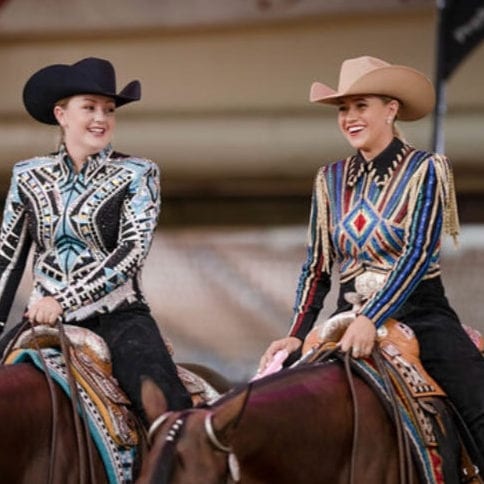Good sportsmanship is an essential aspect of showing horses. Sometimes we, as an industry, undervalue its importance.
Exhibitors who are gracious when they win and courteous when they lose are widely respected in the equestrian community. This demonstrates respect to your horse, trainer and yourself.
These characteristics allow an exhibitor to be successful both in and out of the show pen. Bad sportsmanship roots from a lack of education.
Remember that we show horses for one reason – because it is fun. The horse show industry is a competitive world, but class and character are always a priority.
We asked our judges to give our readers some advice on how to win and lose with class.
 Daren Wright – I think the best advice we can give anyone in any sport is to lose like a winner. Losing gracefully is a far more respectable and honorable state to be in, and it teaches you to win in the same manner. Trainers and parents have a responsibility to their clients/children to set an example. Having a meltdown in the make-up pen when their client/child didn’t place as they hoped sets a wrong tone and bad example. I’m not saying a good ole’ fashioned temper tantrum can’t make you feel better, but those are reserved for the tack room, hotel room or a truck ride home. That is not appropriate in public.
Daren Wright – I think the best advice we can give anyone in any sport is to lose like a winner. Losing gracefully is a far more respectable and honorable state to be in, and it teaches you to win in the same manner. Trainers and parents have a responsibility to their clients/children to set an example. Having a meltdown in the make-up pen when their client/child didn’t place as they hoped sets a wrong tone and bad example. I’m not saying a good ole’ fashioned temper tantrum can’t make you feel better, but those are reserved for the tack room, hotel room or a truck ride home. That is not appropriate in public.
There is value in good sportsmanship. It takes a noble person to congratulate those that may have beat you. It also takes excellent integrity to commend those in your class when you are the winner. Those traits and acknowledgments do not go unnoticed by those around you. When you make an effort to lose gracefully and win graciously, your trainers, other exhibitors and parents will thank you in the end.
 Robin Frid – Learn to show for the ride. It takes a long time to learn that, no matter what came out with the judges, you need to ride for yourself at that moment. It makes it easier to show when you are not as worried about the outcome of the judges. This is an essential aspect of learning to have good sportsmanship when you leave the pen. Be courteous, even if you’re upset, keep your emotions in check. What the judge thinks of the winner is not the exhibitor’s fault. There are a lot more judges outside of the arena than inside the arena. Those judges are the ones that matter. They see how you react and view the competition from a different standpoint. When winning, it is essential to not be overly boastful. It takes a stronger person to be grateful than to over celebrate.
Robin Frid – Learn to show for the ride. It takes a long time to learn that, no matter what came out with the judges, you need to ride for yourself at that moment. It makes it easier to show when you are not as worried about the outcome of the judges. This is an essential aspect of learning to have good sportsmanship when you leave the pen. Be courteous, even if you’re upset, keep your emotions in check. What the judge thinks of the winner is not the exhibitor’s fault. There are a lot more judges outside of the arena than inside the arena. Those judges are the ones that matter. They see how you react and view the competition from a different standpoint. When winning, it is essential to not be overly boastful. It takes a stronger person to be grateful than to over celebrate.
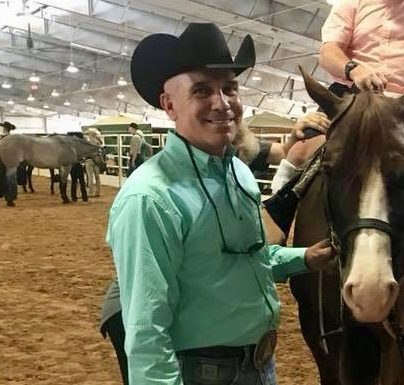 Stephen Stephens – A lot of times, bad sportsmanship is created from a lack of education. I always praise my horse even when I am in there, and I know I had a good ride, yet I do not get used on the cards. Be happy with your good trip. I try not to put the energy into that person’s opinion after the class. Judges do not know the story of where an exhibitor came from and their progression. A lot of times people do not separate one from the other. It is also important to remember to be humble after a win. A humble winner is always an approachable winner who you want to congratulate.
Stephen Stephens – A lot of times, bad sportsmanship is created from a lack of education. I always praise my horse even when I am in there, and I know I had a good ride, yet I do not get used on the cards. Be happy with your good trip. I try not to put the energy into that person’s opinion after the class. Judges do not know the story of where an exhibitor came from and their progression. A lot of times people do not separate one from the other. It is also important to remember to be humble after a win. A humble winner is always an approachable winner who you want to congratulate.
 Heather Young – When exhibitors go to a horse show, it is a test of the skills they have been working on. Their actions and behavior are a reflection of the person they are. Whether the exhibitor walks out of the arena as the winner or loser, they need to remain humble and appreciative. One must also continue to work hard and stay dedicated because there are always others working just as hard to win. Exhibitors also need to be aware of their actions and show good sportsmanship because you never know who is watching; it may be someone who looks up to you.
Heather Young – When exhibitors go to a horse show, it is a test of the skills they have been working on. Their actions and behavior are a reflection of the person they are. Whether the exhibitor walks out of the arena as the winner or loser, they need to remain humble and appreciative. One must also continue to work hard and stay dedicated because there are always others working just as hard to win. Exhibitors also need to be aware of their actions and show good sportsmanship because you never know who is watching; it may be someone who looks up to you.
 Mark Russell – It’s certainly much easier to win with class or do it gracefully, but there’s going to be instances where we all need to lose with grace. I think any time that we lose and do it without grace, we’re belittling those who did well in that class and saying that they didn’t deserve to win, but you did. The most gracious thing a loser can do is congratulate the winner. There’s always going to be another class. But you’ll never get those instances back where you could’ve offered a congratulation or even a handshake to the winner. I think we put too much pressure on ourselves to do well and forget why we began showing in the first place – for fun. Not to mention, there’s probably someone out there that would love to be in your shoes, even if you didn’t win that day. Winning, on the other hand, is different because we naturally feel good when we win. So it’s easier to show joy. But we all started somewhere and probably weren’t that great as beginners. So remembering where you came from and the progress made seems to help keep us grounded. And you never know if that win will go again, so it’s important to appreciate those things when they happen since nothing is guaranteed.
Mark Russell – It’s certainly much easier to win with class or do it gracefully, but there’s going to be instances where we all need to lose with grace. I think any time that we lose and do it without grace, we’re belittling those who did well in that class and saying that they didn’t deserve to win, but you did. The most gracious thing a loser can do is congratulate the winner. There’s always going to be another class. But you’ll never get those instances back where you could’ve offered a congratulation or even a handshake to the winner. I think we put too much pressure on ourselves to do well and forget why we began showing in the first place – for fun. Not to mention, there’s probably someone out there that would love to be in your shoes, even if you didn’t win that day. Winning, on the other hand, is different because we naturally feel good when we win. So it’s easier to show joy. But we all started somewhere and probably weren’t that great as beginners. So remembering where you came from and the progress made seems to help keep us grounded. And you never know if that win will go again, so it’s important to appreciate those things when they happen since nothing is guaranteed.
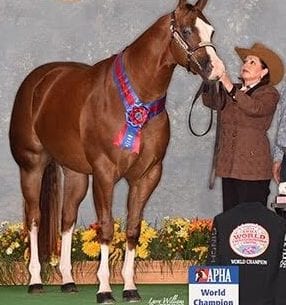 Jodi Finkenbinder – How we conduct ourselves in the show ring is no different than how we should walk through life. Smiling through the victories and successes is easy. What indeed makes us a champion is how we deal with disappointment and our failures. Grace is both not receiving something we do deserve and receiving something we do not. It also describes a showman who can accept a result that was not what they wished for, but accepts the outcome and knows that there will be another day. Showmen that retain dignity and grace and a positive attitude are noticed and appreciated and do not go unnoticed. Over time, that respect earned from the judges will pay off tenfold.
Jodi Finkenbinder – How we conduct ourselves in the show ring is no different than how we should walk through life. Smiling through the victories and successes is easy. What indeed makes us a champion is how we deal with disappointment and our failures. Grace is both not receiving something we do deserve and receiving something we do not. It also describes a showman who can accept a result that was not what they wished for, but accepts the outcome and knows that there will be another day. Showmen that retain dignity and grace and a positive attitude are noticed and appreciated and do not go unnoticed. Over time, that respect earned from the judges will pay off tenfold.
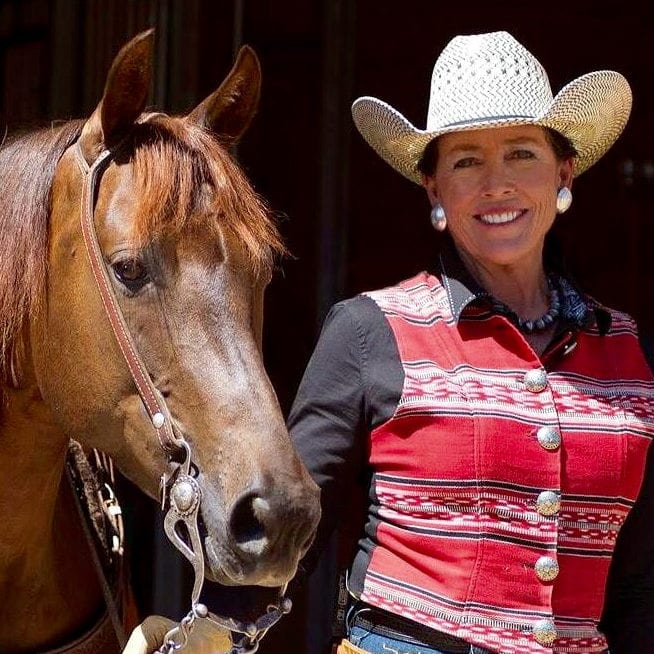 Laurel Walker Denton –From the very first time I entered a show ring over fifty years ago, I was always taught to enjoy the ride, win, lose or draw. I also learned to still congratulate the winner and never show disappointment in public. Show respect to the judge and your horse no matter the outcome. The most important thing to remember about a horse show is, it is supposed to be fun. Try to leave the show with a better horse than you came with. Then, everyone wins.
Laurel Walker Denton –From the very first time I entered a show ring over fifty years ago, I was always taught to enjoy the ride, win, lose or draw. I also learned to still congratulate the winner and never show disappointment in public. Show respect to the judge and your horse no matter the outcome. The most important thing to remember about a horse show is, it is supposed to be fun. Try to leave the show with a better horse than you came with. Then, everyone wins.
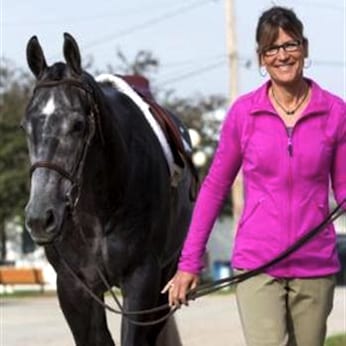 Stephanie Lynn – Contests of any kind are less about winning and losing and more about the journey. Learning to win and lose with grace comes more readily to those who truly love every aspect of the game. The path to success includes both winning and losing. Appreciating the talent of those with whom you compete makes winning and losing more meaningful. Every exhibitor has had an experience where they felt sure they were supposed to be the winner, but were not. They have also experienced winning with an error in their performance. Grace includes accepting the lesson that comes from any defeat. Being a graceful winner may come easier, but learning to be a graceful loser will shape your character into the most elite of winners
Stephanie Lynn – Contests of any kind are less about winning and losing and more about the journey. Learning to win and lose with grace comes more readily to those who truly love every aspect of the game. The path to success includes both winning and losing. Appreciating the talent of those with whom you compete makes winning and losing more meaningful. Every exhibitor has had an experience where they felt sure they were supposed to be the winner, but were not. They have also experienced winning with an error in their performance. Grace includes accepting the lesson that comes from any defeat. Being a graceful winner may come easier, but learning to be a graceful loser will shape your character into the most elite of winners
 Mark Sheridan – I feel that it’s not so much about clapping and applauding your fellow exhibitors when they win, which does show good sportsmanship and encourages one to appreciate the joys of winning, but more so on how they treat their horses upon exiting the arena. As a judge, if there is a class of thirty or more horses competing – statistically, the top five or so exhibitors are going to be pretty damn happy, while the other twenty-five or so exhibitors are going to be dejected and disappointed. I think that is why I started training and showing (as well as my clients) in individual scored performance classes such as trail and western riding back as early as the seventies and eighties. I wanted all of the judge’s attention for a certain amount of time where I wouldn’t get lost in the group rail classes. If I notice an exhibitor that is having a bad ride or maybe just a bad day, and he or she is knocking their horse around, we will keep an eye on them as they exit the arena and how they treat their horse in the warm-up pen. It’s all about the animal, and that is a good thing. I feel that a few exhibitors take things personally with their horses, and don’t stop to realize that they are just animals.
Mark Sheridan – I feel that it’s not so much about clapping and applauding your fellow exhibitors when they win, which does show good sportsmanship and encourages one to appreciate the joys of winning, but more so on how they treat their horses upon exiting the arena. As a judge, if there is a class of thirty or more horses competing – statistically, the top five or so exhibitors are going to be pretty damn happy, while the other twenty-five or so exhibitors are going to be dejected and disappointed. I think that is why I started training and showing (as well as my clients) in individual scored performance classes such as trail and western riding back as early as the seventies and eighties. I wanted all of the judge’s attention for a certain amount of time where I wouldn’t get lost in the group rail classes. If I notice an exhibitor that is having a bad ride or maybe just a bad day, and he or she is knocking their horse around, we will keep an eye on them as they exit the arena and how they treat their horse in the warm-up pen. It’s all about the animal, and that is a good thing. I feel that a few exhibitors take things personally with their horses, and don’t stop to realize that they are just animals.


